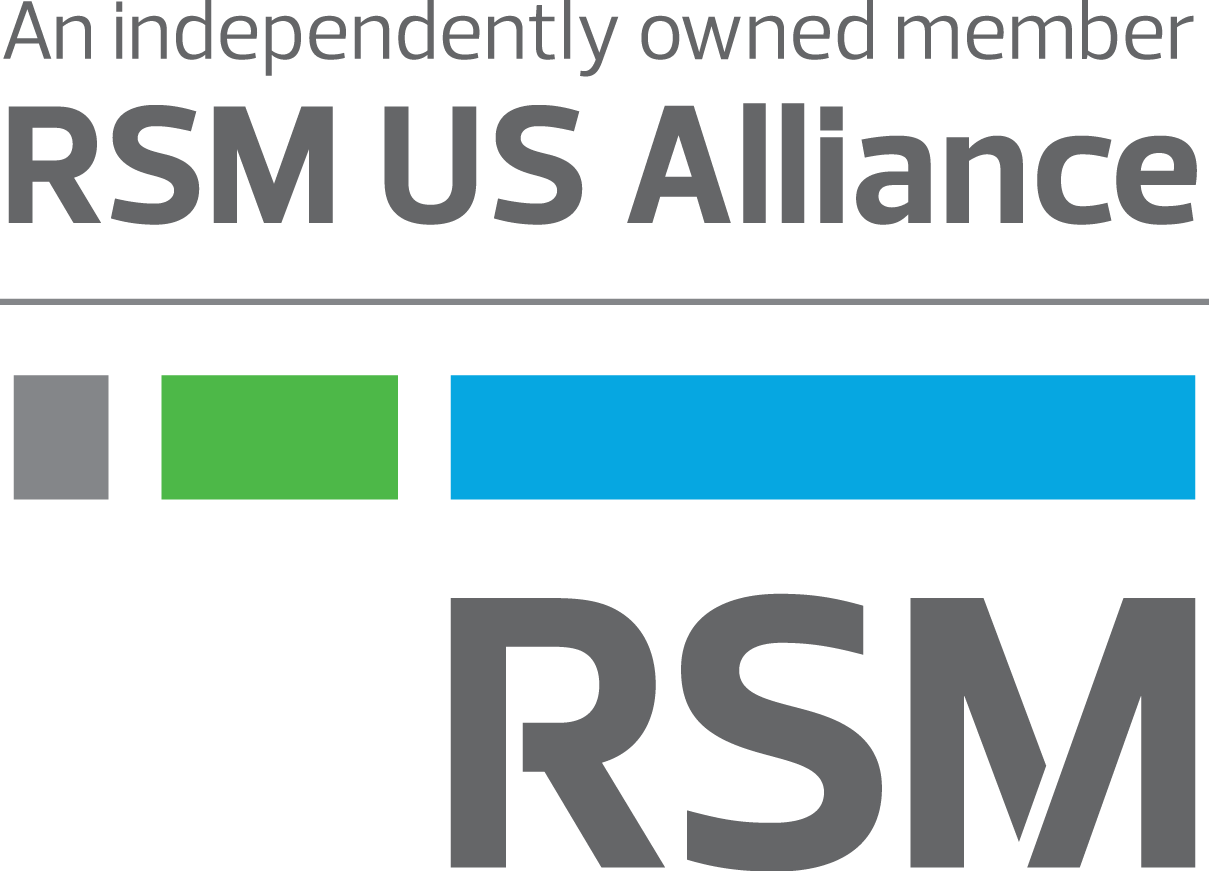
IRS rules on treatment of cryptocurrency validation rewards
ARTICLE | August 09, 2023
Authored by RSM US LLP
Executive summary: IRS guidance states blockchain validation awards are income upon receipt; guidance is already subject to challenge.
In a recent ruling, the IRS held that income comes from a blockchain algorithmic protocol. Many blockchain protocols require third parties to validate proposed transactions before they can be written to the blockchain (a distributed ledger). When a series of transactions (a block) is successfully validated and written to the ledger, a pre-determined algorithm automatically creates a new coin (a validation award) and sends it to the third-party validator. In Rev. Rul. 2023-14 (released on July 31, 2023) the IRS stated that the value of blockchain award coins is includible in the gross income of a cash method taxpayer at the time of receipt and not upon a later sale or disposition of the coins. The issue in the revenue ruling is already the subject of pending litigation. IRS revenue rulings do not have the force and effect of Treasury regulations. However, they do provide precedents that IRS revenue agents and taxpayers can use for similar positions in other cases and taxpayers that receive reward coins should discuss with their tax adviser the impact the ruling may have on their tax treatment of the coins.
IRS rules on treatment of cryptocurrency validation rewards
IRS says value of award coins is income at the time of receipt.
According to the IRS, income can come from a blockchain algorithmic protocol. Many blockchain protocols require third parties to validate proposed transactions before they can be written to the blockchain (a distributed ledger). When a series of transactions (a block) is successfully validated and written to the ledger, a pre-determined algorithm automatically creates a new coin (a validation award) and sends it to the third-party validator. In Rev. Rul. 2023-14 (released on July 31, 2023) the IRS stated that the value of blockchain award coins is includible in the gross income of a cash method taxpayer at the time of receipt and not upon a later sale or disposition of the coins. This is not a new issue. The issue in the revenue ruling is already the subject of pending litigation. IRS revenue rulings do not have the force and effect of Treasury regulations. However, they do provide precedents that IRS revenue agents and taxpayers can use for similar positions in other cases, and taxpayers that receive reward coins should discuss with their tax adviser the impact the ruling may have on their tax treatment of the coins.
The conclusion in the revenue ruling is already under challenge.
In 2021, Joshua and Jessica Jarrett filed a lawsuit against the United States challenging the position stated in the recent ruling. Jarrett v. United States (No. 3:21-cv-00419, M.D. Tenn., on appeal, No. 22-6023, 6th Cir.) The Jarretts included in income the value of reward coins they created through their participation in a proof of stake protocol in 2019 and subsequently filed a refund claim for the tax paid on such income. When the IRS did not act on their refund claim they filed a complaint in court. The Jarretts argued that reward coins are self-created property that should only be taxed upon disposition (the Jarretts analogized their situation to a baker who bakes a loaf of bread and is taxed only upon sale of the created loaf). After answering the complaint, the Department of Justice authorized payment of the tax refund requested by the Jarretts and convinced the district court to dismiss the lawsuit as moot. The Jarretts appealed the dismissal of their lawsuit, arguing that they were entitled to a ruling from the court because they would face this exact issue in subsequent years. The Jarretts cited the IRS’s Chief Counsel Directives Manual which provided that ‘A taxpayer may seek a refund of tax or other relief . . . such as an injunction against the collection of similar tax in the future.’ Internal Revenue Manual 34.5.2.1(2) (08-11-2004).
On July 26, 2023, during oral argument in the Jarretts’ appeal, a Department of Justice attorney defended the government’s ability to render selected cases moot by granting refunds. The Chief Judge of the appellate court acknowledged some benefits of allowing the government to defer cases if it needed more time to work out its position on difficult or novel issues. However, less than a week later, the IRS issued Rev. Rul. 2023-14 unambiguously stating that it disagreed with the Jarretts on the merits of the issue. The Jarretts quickly pointed this out to the appellate court and maintained that they were entitled to be heard on the merits of their case and seek injunctive relief because they were exposed to collection of similar tax in the future.
Digital asset validation, in which a new coin is created by protocol, leads to questions about what service is being provided to whom.
The revenue ruling cites only two cases in support of the ruling that the reward coins represent income upon receipt, both involving property or services transferred to a taxpayer in connection with the performance of services. Both cases reach the well-settled conclusion that in a contractual relationship when one party receives property from another party in exchange for services rendered, the party rendering the services recognizes income equal to the fair market value of the property received.
The IRS, in Rev. Rul. 2023-14, is implicitly treating a taxpayer engaging in blockchain validation activity as performing a service for the individuals using the blockchain. However, unlike the cases cited by the IRS, the parties using the blockchain (the purported service recipients) (1) have no contractual relationship with the purported service provider (they are unknown to the service provider) and (2) pay nothing to the purported service provider. Instead, the reward coin generated by the validation activity is newly created property that does not result in any economic loss to the purported service recipient. Regardless of these differences, the IRS maintains the coins generated by the purported service provider’s efforts are income. This may be because the taxpayer acts with the expectation of future profit, even if the taxpayer does not know the parties that benefit from the validating activity.
The IRS does not attempt to distinguish the analogy raised by the Jarretts in their lawsuit (a baker baking a loaf of bread is taxed only upon the sale of the bread). The IRS also states that the revenue ruling does not address any issues arising under section 83 (property transferred in connection with performance of services).
Given the lack of case law on this issue and the ongoing litigation, taxpayers are encouraged to discuss the tax treatment of validation reward coins with their tax professional, including whether a change in treatment of reward coins necessitates a tax accounting method change.
This article was written by Ryan Corcoran, Kate Abdoo, John Cardone, Karen Field and originally appeared on 2023-08-09.
2022 RSM US LLP. All rights reserved.
https://rsmus.com/insights/tax-alerts/2023/irs-rules-on-treatment-of-cryptocurrency-validation-rewards.html
The information contained herein is general in nature and based on authorities that are subject to change. RSM US LLP guarantees neither the accuracy nor completeness of any information and is not responsible for any errors or omissions, or for results obtained by others as a result of reliance upon such information. RSM US LLP assumes no obligation to inform the reader of any changes in tax laws or other factors that could affect information contained herein. This publication does not, and is not intended to, provide legal, tax or accounting advice, and readers should consult their tax advisors concerning the application of tax laws to their particular situations. This analysis is not tax advice and is not intended or written to be used, and cannot be used, for purposes of avoiding tax penalties that may be imposed on any taxpayer.
RSM US Alliance provides its members with access to resources of RSM US LLP. RSM US Alliance member firms are separate and independent businesses and legal entities that are responsible for their own acts and omissions, and each are separate and independent from RSM US LLP. RSM US LLP is the U.S. member firm of RSM International, a global network of independent audit, tax, and consulting firms. Members of RSM US Alliance have access to RSM International resources through RSM US LLP but are not member firms of RSM International. Visit rsmus.com/aboutus for more information regarding RSM US LLP and RSM International. The RSM(tm) brandmark is used under license by RSM US LLP. RSM US Alliance products and services are proprietary to RSM US LLP.

VPTAX is a proud member of RSM US Alliance, a premier affiliation of independent accounting and consulting firms in the United States. RSM US Alliance provides our firm with access to resources of RSM US LLP, the leading provider of audit, tax and consulting services focused on the middle market. RSM US LLP is a licensed CPA firm and the U.S. member of RSM International, a global network of independent audit, tax and consulting firms with more than 43,000 people in over 120 countries.
Our membership in RSM US Alliance has elevated our capabilities in the marketplace, helping to differentiate our firm from the competition while allowing us to maintain our independence and entrepreneurial culture. We have access to a valuable peer network of like-sized firms as well as a broad range of tools, expertise, and technical resources.
For more information on how the VPTAX can assist you, please call us at (408) 278-8370.